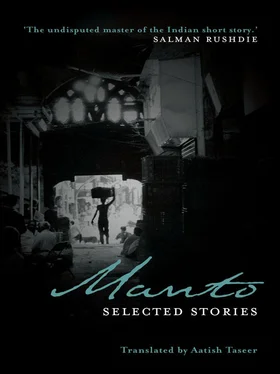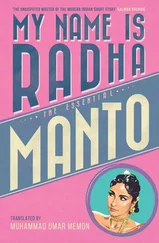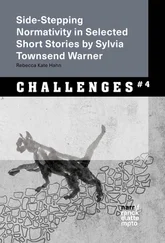The next day Abu and the girl were married. She was from Gujarat district, the daughter of a cobbler; her name was Nesti. She had come to town with her relatives. They had been waiting at the station even as Abu and she were falling in love.
They were both very happy. Abu didn’t sell his horse and carriage to have gold bangles made for Nesti, but he did spend his savings on gold earrings and silk clothes for her.
His heart danced when Nesti appeared before him, her silk skirt swishing from side to side. ‘I swear on the five pure ones, there’s no one in the world beautiful like you are.’ With this, he would press her against his chest. ‘You’re the queen of my heart.’
The two were immersed in the pleasures of youth. They sang; they laughed; they went on walks; they swore fidelity to each other. A month passed like this when suddenly one morning the police arrested Abu. A kidnapping case was registered against him. Nesti stood by him firmly, unwaveringly protesting his innocence, but despite that, Abu was sentenced to two years’ imprisonment. When the court gave its verdict, Nesti wrapped her arms around Abu. ‘I’ll never go to my mother and father,’ she said as she wept. ‘I’ll sit at home and wait for you.’
Abu gently touched her stomach. ‘Bless you. I’ve given the horse and carriage to Dino. Carry on taking the rent from him.’
Nesti’s parents put great pressure on her, but she didn’t go back to them. Tiring at last, they gave up on her and left her to her lot. Nesti began to live alone. Dino would give her five rupees in the evening, which was enough for her expenses. She also received the money that had accumulated during the court case.
Abu and Nesti met once a week at the jail, meetings which were always too brief for them. Whatever money Nesti saved, she spent on bringing Abu comfort in jail. At one meeting, Abu, looking at her bare ears, asked, ‘Where are your earrings, Nesti?’
Nesti smiled, and looking at the sentry, said, ‘I must have lost them somewhere.’
‘You needn’t take so much care of me,’ Abu said with some anger, ‘I’m alright, however I am.’
Nesti said nothing. Their time was up. She left smiling, but when she reached home, she wept bitterly; she wept for hours because Abu’s health was declining. In this last meeting, she could hardly recognise him. The strapping Abu was a shadow of his former self. Nesti thought his sorrow had consumed him and that their separation had caused his decline. What she didn’t know was that Abu had TB and that the disease ran in his family. Abu’s father had been even sturdier than Abu, but TB soon sent him to his grave. Abu’s elder brother had also been a strapping young man, but the disease had caused him to wither away in the flower of his youth. Abu himself was unaware of this, and taking his last breath in the prison hospital, he said to Nesti in a sorrowful voice: ‘If I had known I was going to die so young, I swear on the one, omnipresent God, I wouldn’t have made you my wife. I’ve done you a great injustice. Forgive me. And listen, my horse and carriage are my hallmark. Take care of them. Stroke Chinni on the head and tell him that Abu sends his love.’
Abu died, leaving Nesti’s world desolate. But she was not a woman to be easily defeated. She withstood her sorrow. The house was deserted now. In the evenings, Dino would come and comfort her. ‘Have no fear, bhabhi. No one walks ahead of God. Abu was my brother. Whatever I can do for you, with God’s will, I will do.’
At first Nesti didn’t understand, but when her mourning period was over, Dino said in no unclear terms that she should marry him. She wanted to kick him out of the house when she heard this, but only said, ‘Dino, I don’t want to remarry.’
From this day on, there was a difference in the rupees Dino gave her. Earlier, he had given her five rupees daily without fail. But now he would sometimes give her four, sometimes three. His excuse was that business was slow. Then he began disappearing for two to three days at a time. Sometimes he said he was sick; other times he’d say some part of the carriage was broken and he couldn’t take it out. He went too far one day and Nesti finally said, ‘Listen, Dino, don’t trouble yourself with it anymore. Just hand the coach and horse over to me.’
After much hemming and hawing, Dino was at last forced to place the horse and coach back in Nesti’s custody. She, in turn, gave it to Maja, a friend of Abu’s. Within a few days, he proposed marriage as well. When she turned him down, his eyes changed; the warmth in them seemed to vanish. Nesti took the horse and carriage back from him and gave it to a coachman she didn’t know. He really broke all boundaries, arriving completely drunk one night to give her the money, and making a grab for her as soon as he walked through the door. She let him have it and fired him at once.
For eight or ten days, the coach was in the stable, out of work, racking up costs — feed on one hand, stable rent on the other. Nesti was in a state of confusion. People were either trying to marry her or rape her or rob her. When she went outside, she was met with ugly stares. One night a neighbour jumped the wall and started making advances towards her. Nesti went half mad wondering what she should do.
One day as she sat at home, she thought ‘What if I were to drive the coach myself?’ When she used to go on rides with Abu, she would often drive it herself. She was acquainted with the routes as well. But then she thought of what people would say. Her mind came up with many rejoinders. ‘What’s the harm? Do women not toil and do manual labour? Here working in mines, there in offices, thousands working at home; you have to fill your stomach one way or the other!’
She spent a few days thinking about it. At last she decided to do it. She was confident she could. And so, after asking God’s help, she arrived one morning at the stable. When she began harnessing the horse to the carriage, the other coachmen were stupefied; some thought it was a joke and roared with laughter. The older coachmen tried dissuading her, saying it was unseemly. But Nesti wouldn’t listen. She fitted up the carriage, polished its brass tackle, and after showing the horse great affection and speaking tender words to Abu, she set out from the stable. The coachmen were stunned at Nesti’s dexterity; she handled the carriage expertly.
Word spread through the town that a beautiful woman was driving a coach. It was spoken of on every street corner. People waited impatiently for the moment when she would come down their street.
At first Nesti shied away from male passengers, but she soon lost her shyness and began taking in an excellent income. Her coach was never idle, here passengers got off, there they got on. Sometimes passengers would even fight among themselves over who had stopped her first.
When the work became too much, she had to fix hours for when the coach would go out — in the mornings, from seven to twelve; in the afternoons, from two to six. This arrangement proved beneficial as she managed to get enough rest as well. Chinni was happy too, but Nesti couldn’t help being aware that her clients often rode in her coach only to be near her. They would make her go aimlessly from pillar to post, sometimes cracking dirty jokes in the back. They spoke to her just to hear the sound of her voice. Sometimes she felt that though she had not sold herself, people had slyly bought her anyway. She was also aware that all the city’s other coachmen thought ill of her. But she was unperturbed; her belief in herself kept her at peace.
One morning, the municipal committee men called her in and revoked her licence. Their reason was that women couldn’t drive coaches. Nesti asked, ‘Sir, why can’t women drive coaches?’
Читать дальше












